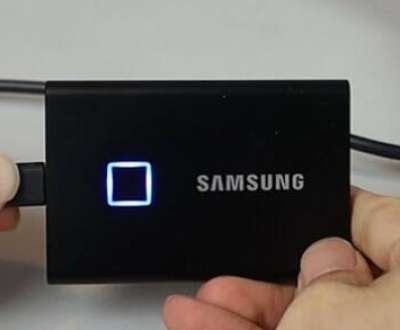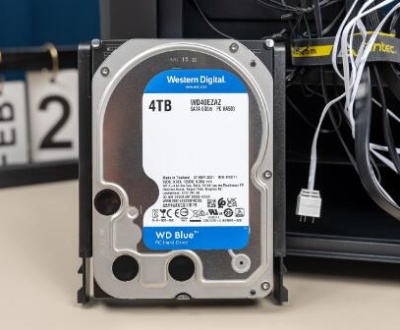Western Digital (WD) external hard drives are trusted by millions worldwide for backing up and storing large amounts of data. From the My Passport series to the Elements and My Book lines, these drives offer fast, reliable, and portable storage. However, just like any hardware device, WD external hard drives can sometimes run into issues. You may find your drive not showing up, not being detected, failing to open, or throwing error messages.
Chapter 1: Common Problems
1.1 Symptoms of a Failing or Malfunctioning WD Drive
The drive is not recognized by the computer
Clicking or beeping sounds when connected
The drive appears but is inaccessible or shows incorrect capacity
Error messages like “Drive not accessible” or “Format the drive before use”

1.2 Possible Causes
Faulty USB cables or power supplies
Corrupted file system
Outdated or missing drivers
Damaged partition table
Virus or malware infection
Mechanical or hardware failure
Improper ejection or sudden power loss
Chapter 2: Initial Troubleshooting Steps
2.1 Inspect Physical Connections
Try a different USB cable and port
Connect to another computer
Use a powered USB hub if drive needs more power
2.2 Check for Drive Activity
Listen for spinning, clicking, or beeping noises
Check for blinking LED lights
Observe if drive appears in File Explorer (Windows) or Finder (Mac)
Chapter 3: Fixes for Windows Users
3.1 Use Disk Management
Press Win + X, select Disk Management
If the WD drive appears as unallocated:
Right-click and choose New Simple Volume
Follow the wizard to create a partition and assign a drive letter
3.2 Update or Reinstall Drivers
Press Win + X, open Device Manager
Expand Disk drives, right-click your WD device
Select Update Driver or Uninstall Device and restart your PC
3.3 Check for File System Errors
Use Command Prompt: chkdsk X: /f /r (replace X with your drive letter)
Windows will scan and repair bad sectors and corrupted files
3.4 Use DiskPart to Clean and Format (Warning: Data Loss)
Run cmd as administrator
Type the following:
diskpart
list disk
select disk # (replace # with your WD drive number)
clean
create partition primary
format fs=ntfs quick
assign
Chapter 4: Fixes for macOS Users
4.1 Use Disk Utility
Navigate to Applications > Utilities > Disk Utility
Select your WD external drive
Click First Aid to repair the volume
4.2 Reformat the Drive (If Data Isn’t Needed)
In Disk Utility, choose Erase
Select a format (Mac OS Extended or exFAT)
Click Erase to reformat and remount the drive
4.3 Reset SMC and PRAM
Shut down the Mac
Hold Shift + Control + Option + Power for 10 seconds (SMC reset)
Restart and hold Command + Option + P + R for 20 seconds (PRAM reset)
Chapter 5: Advanced Fixes
5.1 Use WD Drive Utilities
Download from WD’s official website
Run Diagnostics, Quick Drive Test, and Complete Drive Test
Repair minor software errors and check drive health
5.2 Initialize Drive in Disk Management
If disk shows as Not Initialized:
Right-click > Initialize Disk
Choose MBR or GPT
Create new volume and format it
5.3 Check Disk in BIOS/UEFI
Restart your computer and enter BIOS (usually by pressing Del, Esc, or F2)
Verify that the drive is listed under connected devices
Chapter 6: Data Recovery Solutions
6.1 Use Data Recovery Software
Panda Assistant is a powerful, user-friendly data recovery software designed to help users effortlessly retrieve lost, deleted, or formatted files from a wide range of storage devices. Whether you’ve accidentally deleted family photos, lost important work documents, or experienced a hard drive crash, Panda Assistant provides a reliable solution to recover your data quickly and securely.
What sets Panda Assistant apart is its intuitive interface and advanced scanning algorithms. With just a few clicks, users can initiate deep scans that locate hidden or corrupted files on internal drives, external hard drives, SD cards, USB flash drives, and more. The software supports a wide variety of file formats, including photos, videos, documents, emails, and compressed archives, ensuring that almost any type of data can be recovered.
6.2 Connect Internally (For Desktop Drives)
If enclosure is faulty, remove drive and connect using SATA cable
Use an internal port or SATA-to-USB adapter
6.3 Contact Professional Recovery Services
If your data is critical and drive is physically damaged
Services like Ontrack, Secure Data Recovery, or WD-approved labs
Chapter 7: Preventative Measures
7.1 Handle with Care
Avoid dropping or physically stressing the device
Store in dry, cool environments
Use padded cases for travel
7.2 Eject Properly
Always use Safely Remove Hardware (Windows) or Eject (Mac)
Prevent data corruption by avoiding sudden disconnection
7.3 Monitor Drive Health
Use CrystalDiskInfo, WD Dashboard, or DriveDx
Watch for warning signs: reallocated sectors, slow spin-up, excessive temperature
7.4 Regular Backups
Maintain multiple backup locations (cloud, secondary drives)
Use automated software like Time Machine or Windows Backup
Chapter 8: When to Replace Your WD Drive
8.1 Lifespan of External Drives
Average lifespan: 3 to 5 years
Drives used frequently or for large transfers may degrade faster
8.2 Signs You Should Replace
Persistent clicking or beeping
Frequent file corruption
Mounting errors that persist after formatting
SMART warnings or errors
8.3 Warranty Information
WD offers warranties typically ranging from 2 to 5 years
Check your model’s coverage on WD’s website using serial number
Western Digital external hard drives are dependable tools for managing your digital life, but they aren’t immune to issues. From connection problems and corrupted partitions to more serious mechanical failures, several factors can prevent your drive from working correctly.
About us and this blog
Panda Assistant is built on the latest data recovery algorithms, ensuring that no file is too damaged, too lost, or too corrupted to be recovered.
Request a free quote
We believe that data recovery shouldn’t be a daunting task. That’s why we’ve designed Panda Assistant to be as easy to use as it is powerful. With a few clicks, you can initiate a scan, preview recoverable files, and restore your data all within a matter of minutes.
Subscribe to our newsletter!
More from our blog
See all postsRecent Posts
- How to recover deleted voicemail samsung? 2025-04-22
- Samsung portable ssd t5 online recovery 2025-04-22
- Fix western digital external hard drive 2025-04-22

 Try lt Free
Try lt Free Recovery success rate of up to
Recovery success rate of up to









